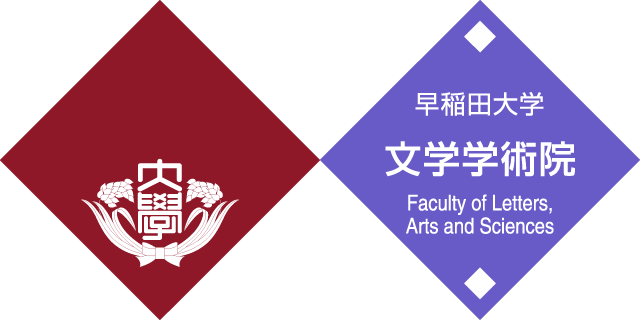- News
- Event Report “The History and Memory of Ports in Literature”
Event Report “The History and Memory of Ports in Literature”
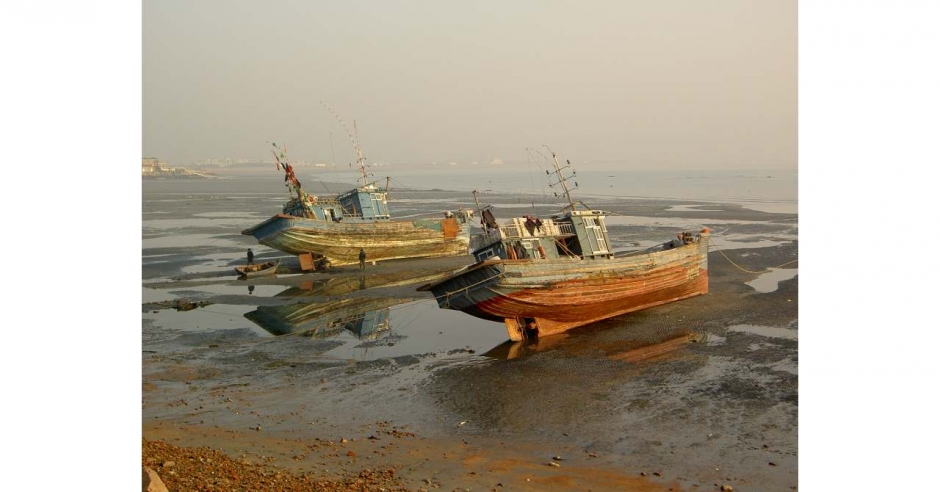
- Posted
- Wed, 02 Feb 2022
On December 23, 2021 (Thu.), the international workshop “The History and Memory of Ports in Literature” was held with a hybrid format of Zoom and in-person (on-campus only). On the day of the workshop, three researchers and three graduate students from Ningbo University in China and Waseda University in Japan gave reports and comments in front of 13 in-person and 229 online participants as follows.
First, Prof. Fumio Tanaka of our university explained the purpose of the workshop: to develop richer and more interdisciplinary academic approaches to the history and memory of ports by looking at the port as a place for various exchanges and social relations from the perspective of literature; and to provide an international research and education environment with the workshop as an opportunity for Japanese and Chinese researchers, and graduate students, to explore together the potential of literature in history from a global perspective.
Next, Gong Yingyan, Honoured Director of School of Humanities and Communication, Ningbo University, explained the significance of the workshop: the significance of research on ports through literary works through the collaboration of the fields of history and literature, which has been insufficiently done thus far; and the significance of academic and educational exchange by researchers and graduate students of Waseda and Ningbo universities conducting such research together.
As the first presentation, Zhang Ru-an, Professor of Ningbo University, took up the following four themes among the many poems composed in Ningbo during the Song and Yuan dynasties: the culture of parting related to the port as a distributing center for people, the commercial activities related to fishing culture such as seafood, the religious and secular culture related to maritime beliefs formed by the gathering of various people, and the starting point of the Silk Road on the sea related to the exchange of goods with neighboring countries. The poems related to these themes vividly depicted Ningbo at that time.
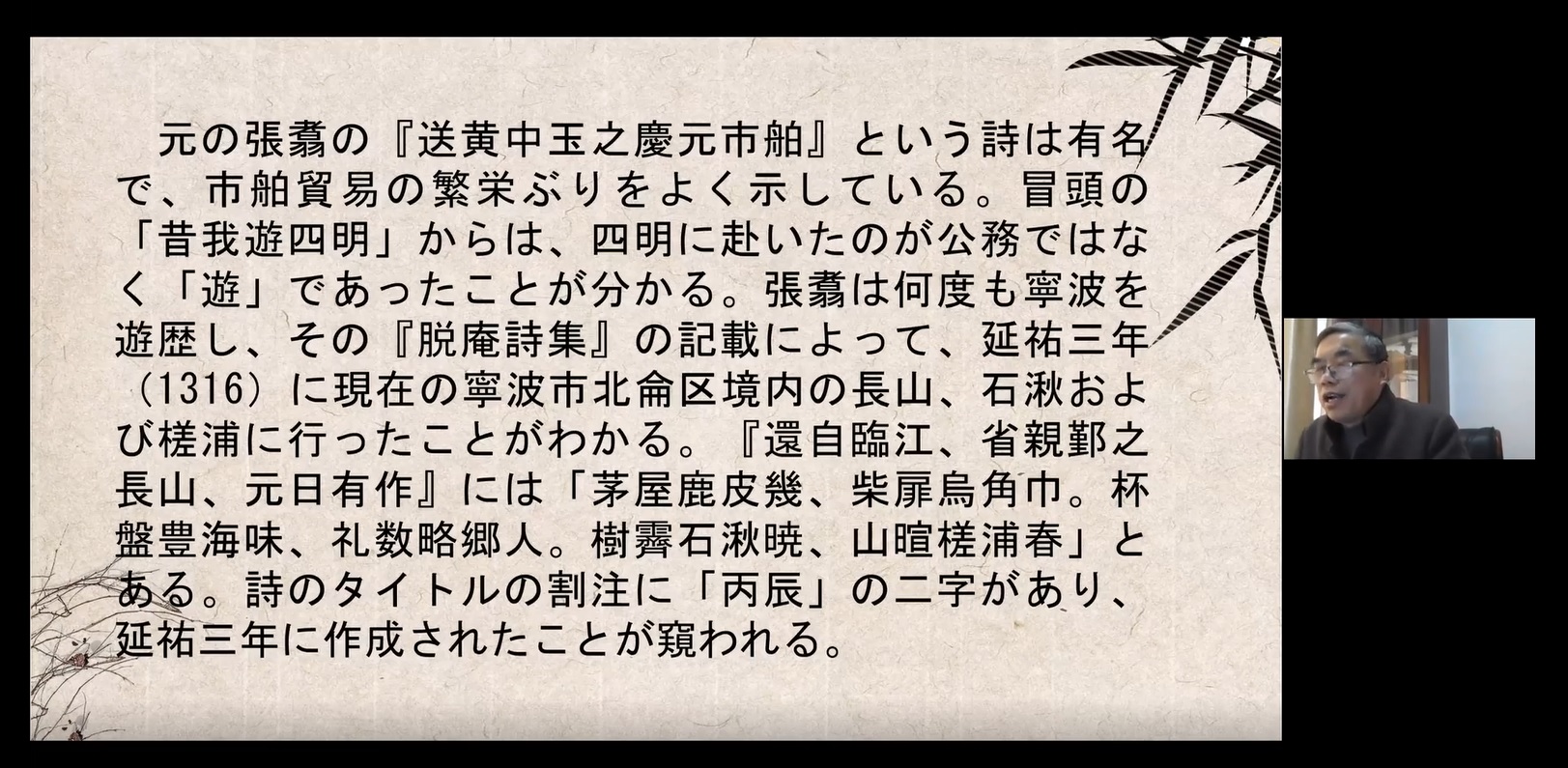
Next, Prof. Fumio Tanaka presented historical materials from literary works such as Taketori Monogatari, Konjaku Monogatari-shu, and Heike Monogatari, which show the exchange between China and the Korean Peninsula and Japan from the 9th to 12th centuries. With these historical materials, he revealed not only the trade of goods, but also the establishment of international human relations, the international situation surrounding Japan at that time, and the actual state of international exchange, demonstrating the great potential of literary works in historical research.
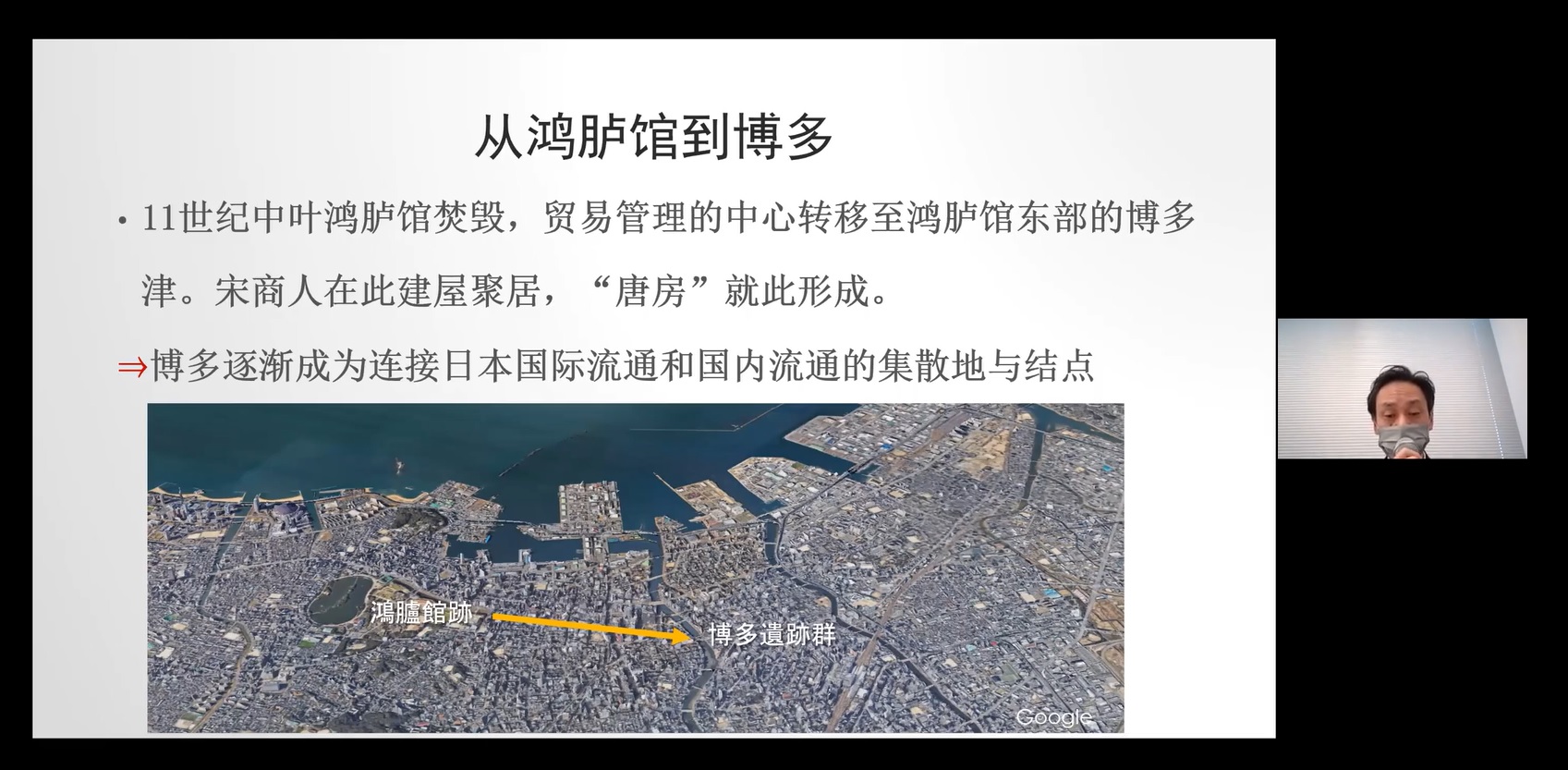
In the final presentation, Hisao Takamatsu, a professor of Waseda university, focused on the Manyoshu, describing the actual state of transportation, mainly by sea, during the 7th and 8th centuries, based on poems about the movement of imperial relatives and officials. At the same time, he showed the significance of Manyoshu as a source of material for thinking about the society of the time, based on people’s images of foreign lands and frontiers, their perceptions of long-distance travel, and human relationships related to travel.
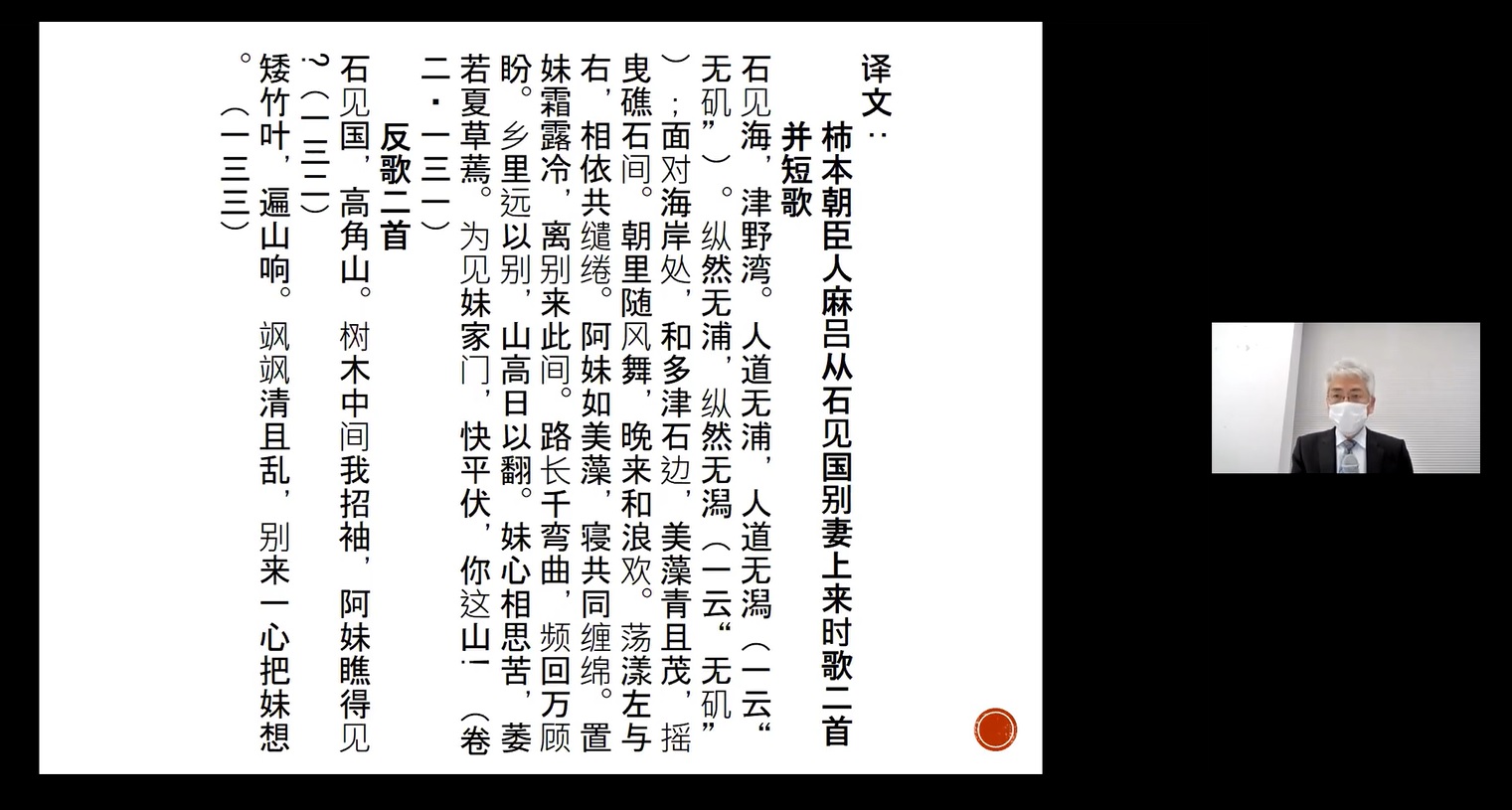
After the presentations, Wang Haiyan, Professor of Zhejiang University, moderated the session, and Yue Qu, a graduate student of Waseda University, and Zhang Jiameng and Kong Danyang, graduate students of Ningbo University, made comments on each of the three reports. As one of the attempts, the commentators had prepared their comments in advance. For this reason, the important discussion based on their deep understanding of the reports took place, getting at the heart of the reports. This was followed by a question and answer session moderated by Kimiko Kono, a professor of Waseda University.
There were many questions from the participating graduate students, and a very lively discussion ensued. Through the above, the importance of the position of literature in the history of international exchange in East Asia was strongly reaffirmed. Young researchers such as graduate students from Japan and China, who will be responsible for future research, actively participated in the discussions, not only in comments but also in the question and answer session. As a result, the workshop closed with high expectations for further progress in the interdisciplinarization and internationalization of education and research.
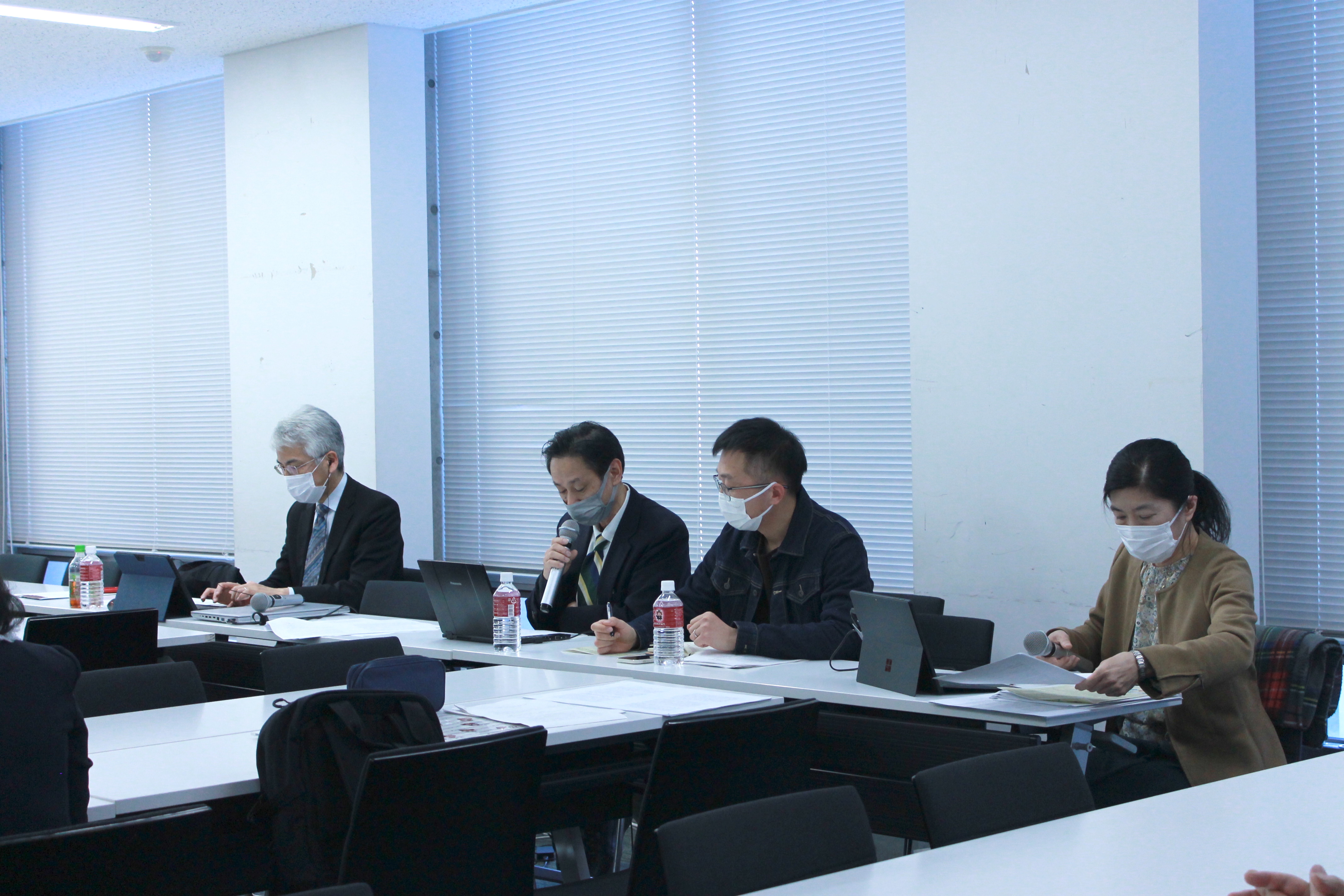 |
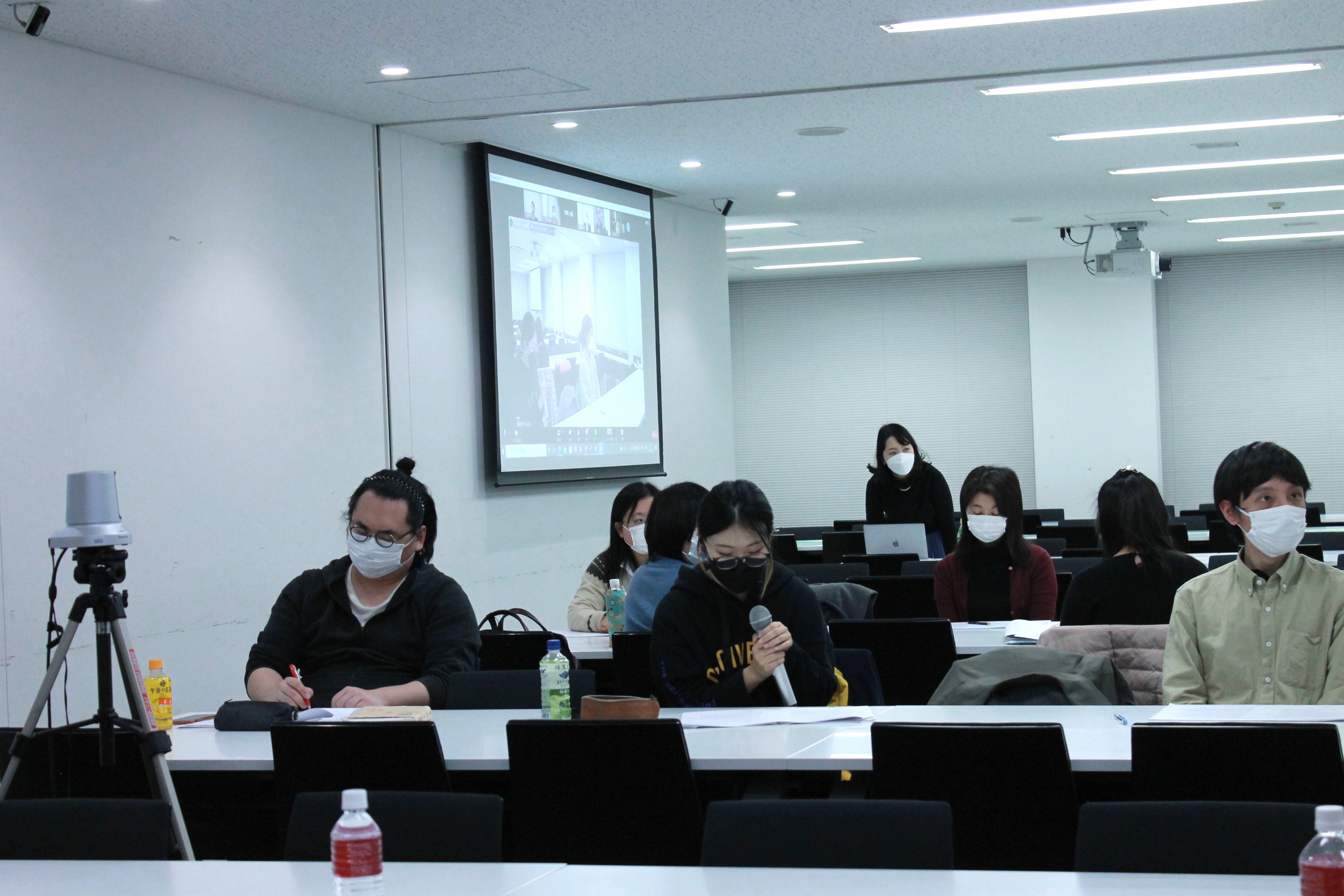 |
Event Overview
- Title: History and Memory of Ports in Literature
- Date and Time: Thursday, December 23, 2021, 14:00-17:40 JST
- Timeline (listed in JST)
14:00 – 14:10 Introductory Remarks
14:10 – 16:20 Presentations
16:20 – 17:10 Comments and questions on each presentation, moderated by Prof. Wang Haiyan of Zhejiang University
17:10 – 17:30 Debates, moderated by Prof. Kōno Kimiko (Faculty of Letters, Arts and Sciences, School of Culture, Media and Society)
17:30 – 17:40 Closing Remarks
- Speakers: Prof. Zhang Ruan (Ningbo University): “Port Cultures of Ningbo during the Song and Yuan Dynasties from the Viewpoint of Poetry”
Prof. Tanaka Fumio (Faculty of Letters, Arts and Sciences, School of Humanities and Social Sciences): “9th and 12th Century Kyushu and Sea Merchants in Japanese Didactic and Literary Tales”
Prof. Takamatsu Hisao (Faculty of Letters, Arts and Sciences, School of Humanities and Social Sciences): “Maritime Transport and Harbors in Ancient Japan Seen in “Man’yōshū” - Moderator: Prof. Kōno Kimiko (Faculty of Letters, Arts and Sciences, School of Culture, Media and Society)
- Venue: Hybrid event – In-person and Online
- Tags
- Event Reports
